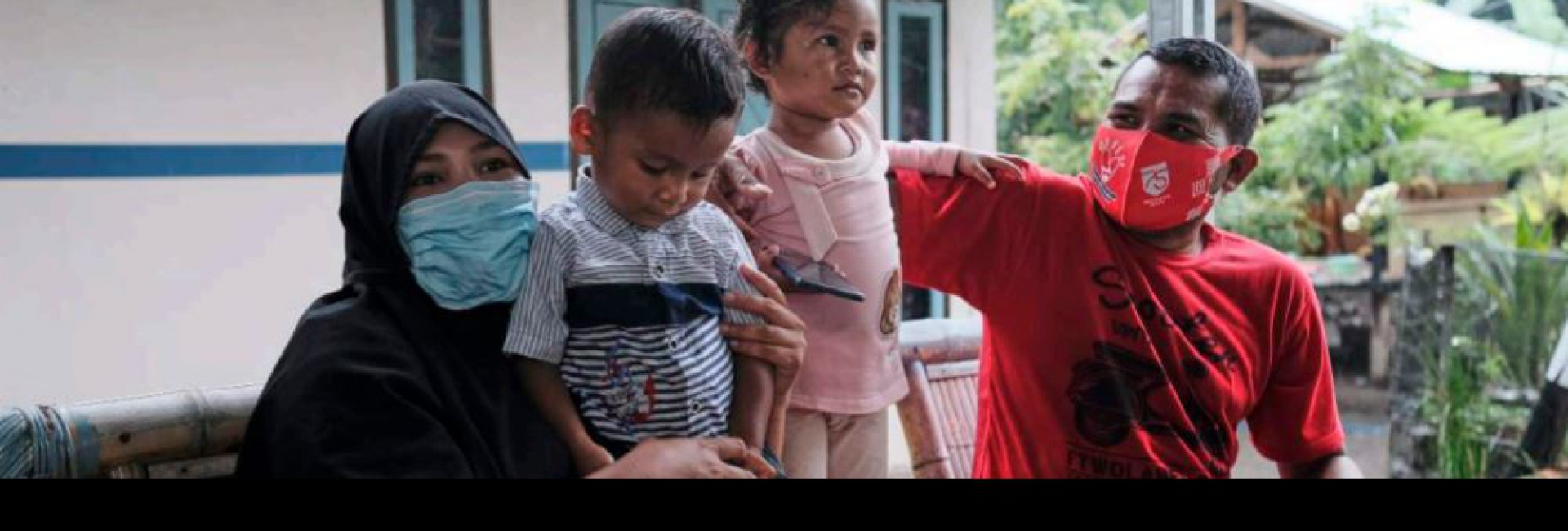While the recovery phase after the 2018 natural disasters is still underway, the COVID-19 pandemic is an additional burden on households in the provinces of Central Sulawesi and West Nusa Tenggara. This study aims to provide a descriptive analysis of the current socioeconomic status of households and the impact of the COVID-19 pandemic on women, children, the elderly, people with chronic diseases, and people with disabilities. Through self-registered and direct interview methods, the study finds that for almost half of the households, the most significant impact of the COVID-19 pandemic is income reduction. Most households’ income in June/July 2020 is lower than in January 2020. Income reductions are predominantly found among female-headed households because most of them have lower incomes than households headed by men. In addition, these households are headed by women who are mostly engaged in informal employment. The income shock disrupts the food security of households in the lowest income group and risks their children’s development. Children are also at risk for less healthy food consumption which may lead to undernourishment or even obesity. Half of the households with members with disabilities also experience disruptions to their daily activities and employment. The second most significant impact is the disruption in accessing education and health services. Children’s access to education was disrupted during the 2018 natural disasters and now they are experiencing further disruption during the “learn from home” policy intended to protect children from the COVID 19 pandemic. The pandemic also disrupts access to health services, particularly among households with elderly people or those with members suffering from chronic diseases needing regular treatment or therapy. Households with children aged five-years-old and under also experience disruptions to the children’s access to immunization services. The social restrictions policy also affects the mental health of household members with disabilities as well as the treatments that they regularly receive. The third most significant impact is the psychological strain caused by the economic shock or the increase in employment and caretaking responsibilities. Children also suffer from disruptions to their daily lives. Unfortunately, low income households do not have adequate coping strategies to withstand the impact of the COVID-19 pandemic. Some of them have also not received assistance to cushion the impact. Regarding the double disasters’ impact on households, this study finds that households that are negatively affected by the 2018 natural disasters also tend to be adversely affected by the COVID-19 pandemic. We recommend that the government works with village authorities and communities to collect data on vulnerable households to be used for the disbursement of social assistance, ensure access to education and proper health services, develop an integrated disaster response program, and make sure that no one is left behind.





